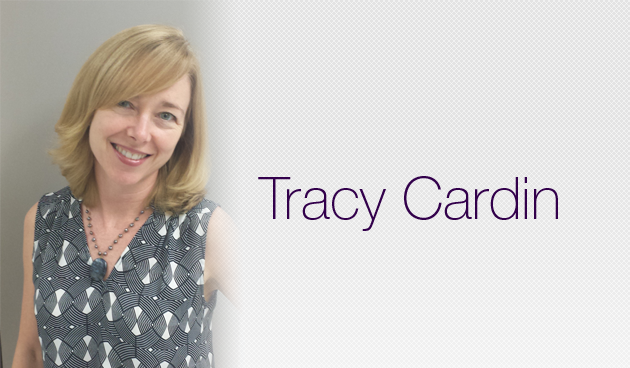My father died of Mantle cell lymphoma 12 years ago. He was only 60 when he succumbed, and despite being involved in the business and brouha of medicine literally since high school, I was so unprepared for his illness. It started when he came to visit me from his home in St. Louis. He had a cold you see, and his cough after the cold was nagging and persistent. I brought him over to my office and listened to him, looked in his ears, and gave him a course of antibiotics. A few weeks later he told me he thought his spleen was swollen and that he felt “full” after he ate. I told him to head to a doctor right away. He did, but was told he had “stress”. The following weekend I came to St. Louis, made him stretch out on the sofa. Yep. Giant spleen. This was followed by low platelets, biopsy, PET scan, lymphoma.
The diagnosis part wasn’t so bad. I mean if you have been in healthcare any length of time you have what I refer to as “cancer paranoia”-aware, always aware, of the precious disease free hours of life. The treament was rough. Watching my vigorous, lady-loving, businessman father depart from golf, and cabernet for frailty, unsteadiness and fear was hard. It was hard to see.
For a while he had a remission, and made jokes about how the family was putting yellow sticky notes on all his possessions in anticipation of his untimely passing. It was a good time, but cancer takes away that unbridled happiness, and leaves a bittersweet taste. I watched him watch my three year old on the carousel thinking, “Is this the last time he will see this?” It despoils every aspect of joy, but at the same time, makes it more poignant. I read a story about a woman who had metastatic colon cancer and three little kids. She said life with cancer is just like regular life, but you have more pancakes. Would I have really noticed that carousel moment without the specter of cancer hanging pall over everything? Pass the pancakes.
Ultimately he contracted a horrible bilateral bilobar pneumonia. He was in ICU on 100% oxygen, delerious for days. Although the decision to withdraw care seems obvious now, at the time it was the elephant in the room that no one would acknowledge. But when I look back on this time there are two events that stand at the front of this experience-twin soldiers standing on either side of this – bookends of bad and good.
In the daytime, my father’s delerium would ease, and what he wanted more than anything was a glass of orange juice. He had been NPO due to his respiratory status. I asked the nurse if he could just have a little juice. She said no. I asked could I please speak with the resident about this. She went away and came back and said, “The resident says he is not going to talk with you about the orange juice.” I was very angry-not about the orange juice per se, but about the seemingly callous refusal to even speak with me. It seemed to reflect what everyone who was caring for my father was demonstrating to me: disinterest, disengagement, immunity to all our pain and sadness.
At night the delerium was naturally worse so we took turns being up all night with him in the ICU, keeping the oxygen on, stopping him from climbing out of bed or pulling out IVs. Such a long, endless night of cold cloths, and holding urinals and putting the oxygen back on and covering him up and uncovering him only to repeat that sequence again. And again. At 5am, my shift was over, and I was glad. I couldn’t do it anymore. I could not stop my heart from breaking anymore. I could not be strong anymore. And as I walked out of the ICU-an ICU nurse-an angel-saw me, gave me such a complete look of compassion and then simply hugged me for a long moment while I wept a little. She kept saying, “It’s so hard, it’s so hard.” And it was. But that hug, that compassion helped a lot. It gave me the lift I needed to keep breathing in and out, to keep putting one foot in front of the other, to survive the pain.
Ultimately my father came home with hospice, and his passing was peaceful, and meaningful with family at his side.
As providers it is clear, we cannot always live in the land of compassion. We cannot always want to give patients orange juice when it’s not good for them. We have to have some clinical objectivity or we would never leave the hospital, we would melt the cell walls of our existence and be very ineffective clinicians indeed.
But the outcome for my father would be unchanged regardless-and that compassion, so freely and generously given to me, did help make that journey survivable.
I think we can’t be completely subsumed with compassion-feeling other’s pain as if it is our own. In my own experience it is sometimes hard to feel any at times. And frequently the opposite is true; that it is hard to keep from feeling too much. I sometimes have to remind myself-this is not your father/uncle/mother/brother/sister/child. This is not about you.
What we need is balance. The balance of humanity, compassion and understanding, but with thought and objectivity.



For Tracy – what an amazing piece of writing! You got the humanity, the compassion, the understanding, the thoughtfulness, the objectivity. You got it all right, just perfectly. But most of all by talking about your personal experience, you conveyed the necessary balance that as providers we need to keep at the fore. I have a private practice of medical counseling/health and wellness coaching – I call it “KeepingLifeBalanced.” I hope I convey that balance as well as you have. Thank you.